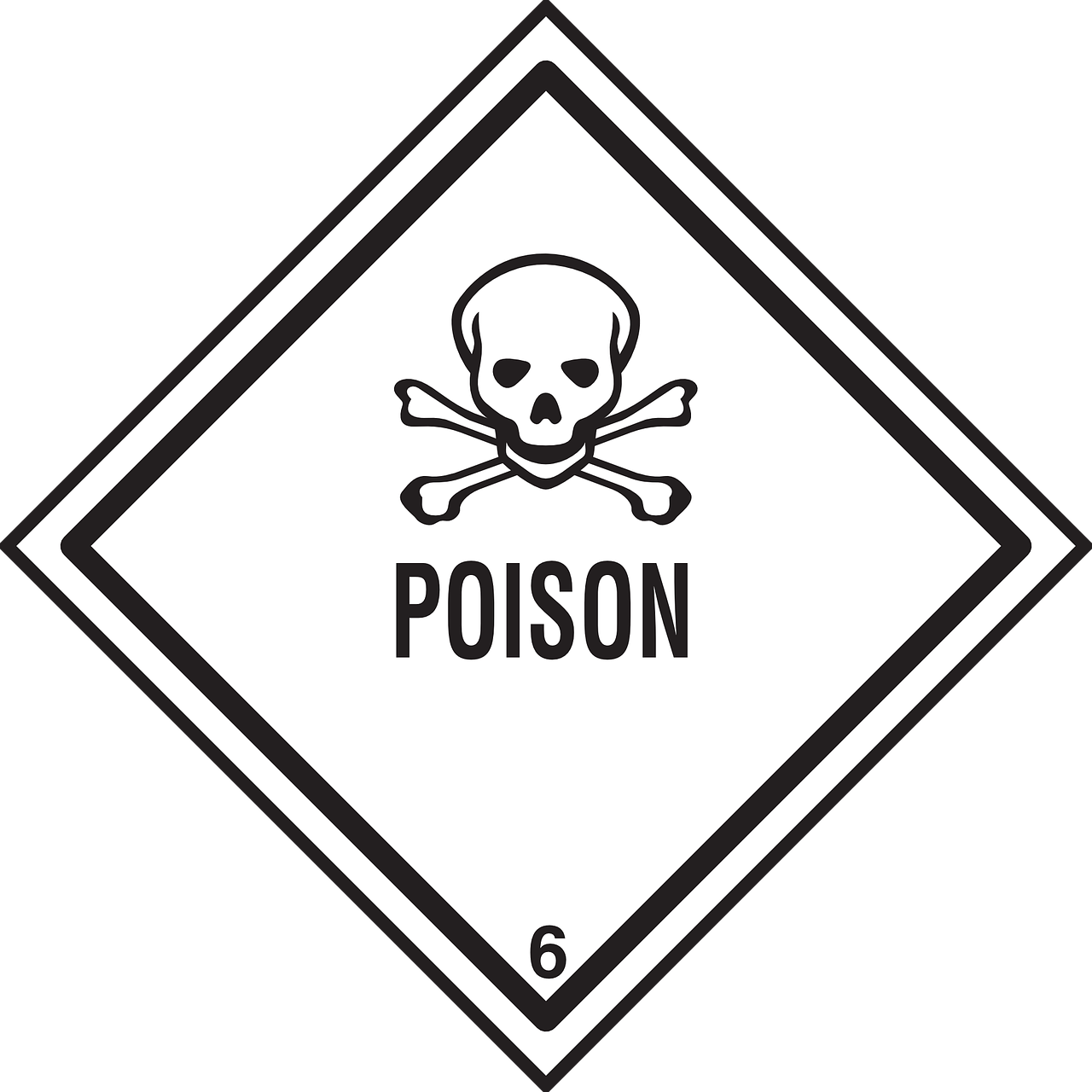
Lead poisoning is a serious health issue that can have devastating effects on individuals, especially young children and pregnant women. This is a serious crime if done on purpose, whether the lead poisoning caused permanent damage or not. It can also be challenged in the court of law even if it’s because of the landlord’s negligence.
According to statistics, lead exposure was attributed to more than 1.5 million deaths globally in 2021, and the number has increased since then.
If you suspect that you or your family have been exposed to lead in your rental property, you may wonder, “Can I sue my landlord for lead poisoning?” This article will explore what lead poisoning is, a landlord’s responsibilities, and the steps you can take if you believe your rental home has lead hazards.
What is Lead Poisoning?
Lead poisoning occurs when lead builds up in the body, often over months or years. Even small amounts of lead can cause serious health problems, particularly in children under the age of six, as their bodies absorb lead more easily than adults. Lead poisoning can affect brain development, nervous system function, and overall growth.
Symptoms of lead poisoning include:
- Developmental delays
- Learning difficulties
- Irritability
- Weight loss
- Abdominal pain, and more.
Landlord’s Responsibility
Landlords have a legal responsibility to provide a habitable living environment for their tenants. This includes addressing known lead hazards in their rental properties.
Federal law, particularly the Residential Lead-Based Paint Hazard Reduction Act, requires landlords to disclose any known lead-based paint and lead-based paint hazards in properties built before 1978.
They must also provide tenants with an EPA-approved information pamphlet on identifying and controlling lead hazards.
What to Do If You Suspect the Presence of Lead in Your Home
If you suspect that your rental home has lead hazards, there are several steps you should take:
- Seek Medical Attention: If you or your family are showing symptoms of lead poisoning, see a medical professional immediately. Blood tests can confirm lead poisoning.
- Document the Lead Presence: Take photographs and keep records of any signs of lead-based paint or lead particles in your home. This documentation can be crucial if you decide to take legal action.
- Notify Your Landlord: Inform your landlord in writing about your concerns regarding lead hazards. Make sure to keep copies of all correspondence.
- Contact Local Authorities: You can reach out to your local health department or the Environmental Protection Agency (EPA) for guidance on lead testing and abatement. You should also look for a personal injury lawyer who has experience in such cases.
How Children Are Exposed to Lead
Children are at the greatest risk for lead poisoning due to their developing nervous systems and tendency to put objects in their mouths. Common sources of lead exposure for children include:
- Lead-based Paint: Found in homes built before 1978, lead-based paint can chip and create lead dust.
- Soil: Lead particles from paint or other sources can contaminate soil, where children might play.
- Water: Lead pipes or solder can leach lead into drinking water.
- Household Dust: Lead dust can settle on toys, furniture, and other surfaces.
Landlord Liability for Lead Poisoning
Landlords can be held responsible for lead poisoning if they fail to inform tenants of known lead hazards or take appropriate action to address lead hazards. This liability can arise from:
- Failure to Disclose: If a landlord knew about the presence of lead-based paint or lead hazards and did not disclose this information to tenants, they could be held liable.
- Negligence: If a landlord does not take reasonable steps to address lead hazards after being informed, they could be found negligent.
Can I Sue My Landlord for Lead Poisoning?
Yes, you can sue your landlord for lead poisoning if you can prove that their negligence or failure to disclose lead hazards directly caused the lead poisoning. To have a strong case, you will need to demonstrate:
- The Presence of Lead Hazards: Evidence that your rental property has lead hazards, such as lead-based paint or lead particles.
- Landlord’s Knowledge: Proof that your landlord knew or should have known about the lead hazards.
- Causation: Medical documentation showing that lead exposure in the rental property caused lead poisoning.
- Damages: Proof of damages, such as medical expenses, lost wages, and pain and suffering.
When Can I Sue My Landlord for Lead Poisoning?
You can sue your landlord for lead poisoning under several circumstances, including:
- Disclosure Violations: If your landlord failed to provide the necessary notifications about lead hazards.
- Negligence: If your landlord did not take appropriate steps to address lead hazards after being notified.
- Inadequate Maintenance: If poor maintenance practices led to the deterioration of lead-based paint, creating a hazardous environment.
How Can I Sue My Landlord for Lead Poisoning?
To sue your landlord for lead poisoning, follow these steps:
- Consult an Attorney: Speak with a lawyer who specializes in lead poisoning cases or landlord-tenant law. Many lawyers offer free consultations to discuss your case.
- Gather Evidence: Collect all relevant documentation, including medical records, photographs of lead hazards, correspondence with your landlord, and any reports from health or environmental agencies.
- File a Complaint: Your attorney will help you file a legal complaint against your landlord in the appropriate court.
- Discovery Process: Both parties will exchange information and evidence related to the case.
- Settlement or Trial: Your case may be settled out of court, or it may go to trial, where a judge or jury will determine the outcome.
What Are the Penalties for Landlords Who Don’t Disclose Lead-Based Paint?
Landlords who fail to disclose lead-based paint and lead hazards can face significant penalties, including:
- Civil Penalties: Fines and penalties imposed by federal or state authorities.
- Compensatory Damages: Payment for medical expenses, lost wages, and other damages suffered by the tenants.
- Punitive Damages: Additional monetary penalties designed to punish the landlord for particularly egregious conduct.
- Injunctive Relief: Court orders requiring the landlord to take specific actions, such as abatement work to remove lead hazards.
Compensation Works for Lead Cases
According to the local law, victims of lead poising deserve compensation for lead cases. These kinds of cases are most common with residential properties and the actual damages can more brutal even if it is a rental unit.
Exposure to lead over time because they property built had problems or was recently renovated still means the owner should be held accountable.
If you successfully sue your landlord for lead poisoning, you may be entitled to various types of compensation, including:
- Medical Expenses: Coverage for current and future medical treatment related to lead poisoning.
- Lost Wages: Compensation for time missed from work due to illness or caring for a lead-poisoned family member.
- Pain and Suffering: Monetary awards for physical and emotional distress caused by lead poisoning.
- Punitive Damages: In cases of extreme negligence or willful misconduct, additional damages to punish the landlord.
Final Thoughts
Lead poisoning is a serious issue that requires immediate attention and action. If you suspect that your rental home has lead hazards, it is crucial to take steps to protect your health and legal rights. Landlords have a duty to provide safe living environments, and failure to address lead hazards can result in significant legal liability.
Once you start understanding your rights and the legal options available, you can take appropriate action to seek compensation and hold your landlord accountable.
Bourassa Law Group For Your Lead Poisoning Case
If you need legal assistance or have questions about your specific situation, contact our Nevada-based law firm, Bourassa Law Group for a consultation. We are here to help you understand the lead poisoning cases and ensure that your rights are protected.
Moreover, our team also has experience with restaurant food poisoning as well as grocery store food poisoning. We know how crucial the attorney client relationship is and we’ll ensure highlighting the landlord responsibilities in our disclosure statement when needed.





